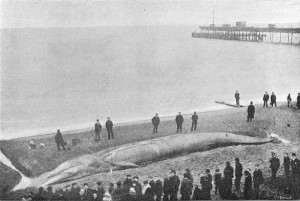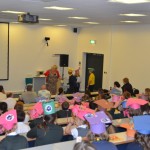‘Trauma and Journalism’
A Panel Discussion on the Role of Trauma
in the Life and Work of Journalists
Venue: The Freud Museum, Maresfield Gardens, London, NW3 5SX
Friday 27 May, 6.30-8pm
Followed by drinks reception, 8-9pm
Tickets:
https://www.freud.org.uk/events/76447/trauma-and-journalism/
This panel event provides insight into the world of journalism and trauma and the role that trauma plays in the life of the journalist, who may encounter highly charged emotional events and distressing images on a regular basis. What coping mechanisms are used when a journalist is confronted with such experiences? What are the costs of succeeding in a career where trauma and its aftermath are experienced and witnessed by those who bring the news to our television screens, newspaper front pages and social media feeds? Drawing on the first hand experiences of senior journalists, this event brings together journalism and psychoanalysis to explore the complex and difficult relationships between trauma and journalism in the late modern world.
Speakers include
Gavin Rees
Director of the Dart Centre for Journalism and Trauma
Helen Long, Reuters News Editor, Producer and Journalist
in conversation with
Sally Weintrobe, Psychoanalyst
Chair :
Stephen Jukes, Professor of Journalism, Bournemouth University.
Followed by Drinks Reception, 8-9pm.
The event is organised by Bournemouth University
in collaboration with the Freud Museum, the Media and the Inner World research network and Dart Centre Europe.
Speaker Biographies
Stephen Jukes is Professor of Journalism at Bournemouth University’s Faculty of Media & Communication, one of the largest of its kind in Europe with an international reputation for combining research, teaching and professional practice. His research focuses on areas of objectivity and emotion in news with an emphasis on trauma and conflict journalism. He was previously a foreign correspondent and editor at the international news agency Reuters. During a series of overseas postings he covered or oversaw coverage of stories ranging from the ousting of Margaret Thatcher to the fall of the Berlin Wall, two Gulf Wars and September 11. In his final position at Reuters, he was Global Head of News and executive editor for a series of books on the Middle East conflict. He chairs the Dart Centre for Journalism & Trauma in Europe and is a trustee of the Institute for War & Peace Reporting.
Helen Long is a seasoned Reuters Television journalist with nearly 20 years of experience covering breaking news around the globe. Prior to joining Reuters in 1997, she spent several years studying the socio-economic costs of anti-personnel mines in the world’s heaviest mined countries on behalf of the International Campaign to Ban Landmines (ICBL), a global coalition of civic organizations that succeeded in pushing through the International Mine Ban Treaty in 1997, earning the ICBL and its founding coordinator, Jody Williams, the Nobel Peace Prize. Based in London, Helen is a trade unionist and leads the Reuters NUJ chapel. She is deeply concerned about the effects of trauma on journalists covering conflict and disaster in the field as well as the more recent and pressing issue of vicarious trauma in the newsroom, stemming from the explosive proliferation of graphic user-generated content (UGC). In 2015, she developed new social media guidelines aimed at mitigating the risks of secondary trauma among journalists working with violent imagery and initiated a Peer Support Network, which provides a complementary source of help, advice and information to Reuters journalists and freelancers around the world.
Gavin Rees, a journalist and filmmaker, is the director of Dart Centre Europe. The Dart Centre is a project of the Graduate School of Journalism at Columbia University in New York and is dedicated to promoting ethical and innovative approaches to the coverage of trauma and violence. Gavin is responsible for implementing the Centre’s work across Europe, and runs workshops and discussion groups on trauma awareness, resilience and interviewing skills for working journalists and journalism students in a range of countries around the world. Gavin has also produced business and political news for US, British and Japanese news channels, and has worked on drama and documentary films for the BBC, Channel 4 and independent film companies. As a visiting fellow in the Media School at Bournemouth University, Gavin is involved in academic research on how journalists report on violence, and he is a board member of the European Society of Traumatic Stress Studies and the UK Psychological Trauma Society.
Sally Weintrobe is a psychoanalyst who writes and talks on how to understand what underlies our widespread disavowal of climate change. She edited and contributed to Engaging with Climate Change (2012). Her current work is on the culture of ‘uncare’, a culture that she argues works to sever our felt caring links with the environment and with each other (see www.sallyweintrobe.com). She is a Fellow of the British Psychoanalytical Society, a Chartered Clinical Psychologist and a founding member of the Climate Psychology Alliance.


 We have previously posted about the Research and Knowledge Exchange (RKE)
We have previously posted about the Research and Knowledge Exchange (RKE)



















 REF Code of Practice consultation is open!
REF Code of Practice consultation is open! BU Leads AI-Driven Work Package in EU Horizon SUSHEAS Project
BU Leads AI-Driven Work Package in EU Horizon SUSHEAS Project Evidence Synthesis Centre open at Kathmandu University
Evidence Synthesis Centre open at Kathmandu University Expand Your Impact: Collaboration and Networking Workshops for Researchers
Expand Your Impact: Collaboration and Networking Workshops for Researchers ECR Funding Open Call: Research Culture & Community Grant – Apply now
ECR Funding Open Call: Research Culture & Community Grant – Apply now ECR Funding Open Call: Research Culture & Community Grant – Application Deadline Friday 12 December
ECR Funding Open Call: Research Culture & Community Grant – Application Deadline Friday 12 December MSCA Postdoctoral Fellowships 2025 Call
MSCA Postdoctoral Fellowships 2025 Call ERC Advanced Grant 2025 Webinar
ERC Advanced Grant 2025 Webinar Update on UKRO services
Update on UKRO services European research project exploring use of ‘virtual twins’ to better manage metabolic associated fatty liver disease
European research project exploring use of ‘virtual twins’ to better manage metabolic associated fatty liver disease